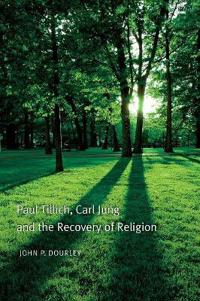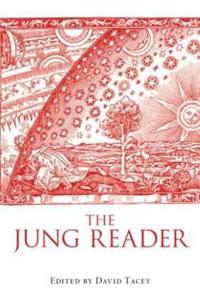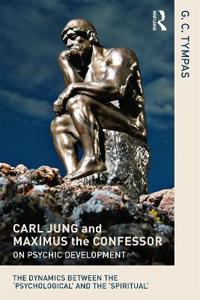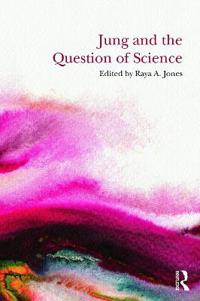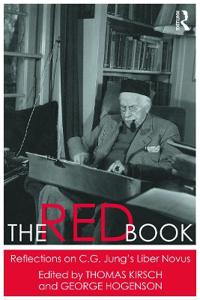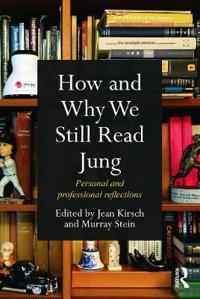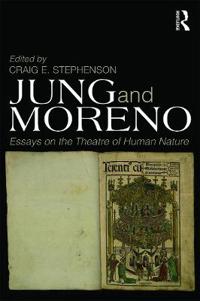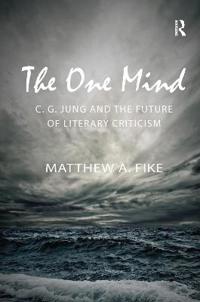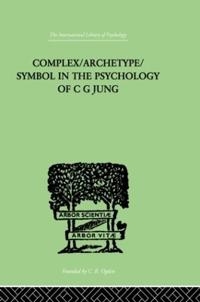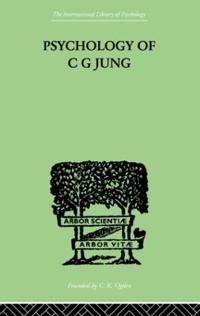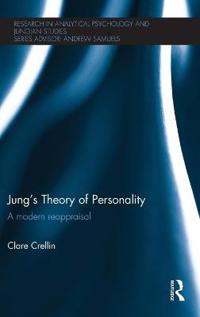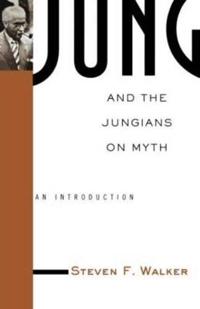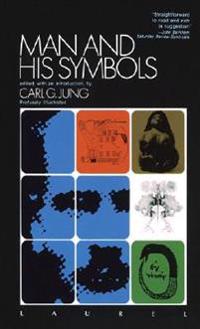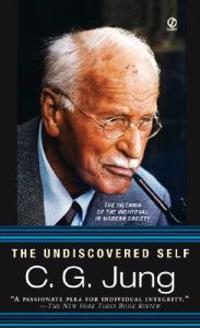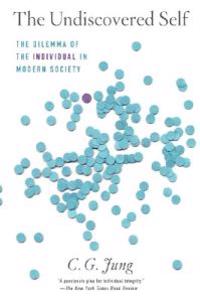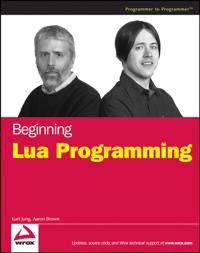Paul Tillich, Carl Jung, and the Recovery of Religion (Pocket)
avJohn P. Dourley
ISBN: 9780415460248 - UTGIVEN: 2008-07Is religion a positive reality in your life? If not, have you lost anything by forfeiting this dimension of your humanity? This book compares the theology of Tillich with the psychology of Jung, arguing that they were both concerned with the recovery of a valid religious sense for contemporary cultu[...]
C. G. Jung and Nikolai Berdyaev: Individuation and the Person
ISBN: 9780415493161 - UTGIVEN: 2010-08This book explores C. G. Jung's psychology through the perspective of the existential philosopher Nikolai Berdyaev, drawing striking parallels between Jung's theory of individuation and Berdyaev's understanding of the person. Placing Jung and Berdyaev firmly within the context of secular humanism, N[...]
Practicing Feminism In South Korea (Inbunden)
avKyungja Jung
ISBN: 9780415567275 - UTGIVEN: 2013-09-15The Korean women 's movement, which is widely seen, in both Western and non-Western countries, as exemplary in terms of women 's activism, experienced a dramatic change in its direction and strategy in the early 1990s, a typical example of the new approach being an increasing focus on sexual violenc[...]
Jung in the 21st Century Volume One (Pocket)
avJohn Ryan Haule
ISBN: 9780415577984 - UTGIVEN: 2010-10-01Offers an overview of Jung's work, demonstrating that it is fully compatible with contemporary views in science. This title discusses areas such as: evolution, archetype and behaviour individuation, complexes and theory of therapy, Jung's psyche and its neural substrate, and the transcendent functio[...]
Jung In The 21st Century (Pocket)
avJohn Ryan Haule
ISBN: 9780415578028 - UTGIVEN: 2010-10-06Explores Jung's understanding of synchronicity and argues that it offers an important contribution to contemporary science. Whilst the scientific world has often ignored Jung's theories as being too much like mysticism, the author argues that what the human psyche knows beyond sensory perception is [...]
The Jung Reader (Häftad)
avDavid Tacey
ISBN: 9780415589840 - UTGIVEN: 2012-03Carl Gustav Jung was the pioneering founder of analytical psychology, a form of analysis that has revolutionised the approach to mental illness and the study of the mind. In this anthology, David Tacey brings together a selection of Jung's essays from his famous Collected Works. Divided into four pa[...]
Jung On Art (Pocket)
avTjeu Van Den Berk
ISBN: 9780415610285 - UTGIVEN: 2012-02-10Originally published in Dutch as Eigenzinnig kunstzinnig. Meinema, 2009.
Carl Jung and Maximus the Confessor on Psychic Development (Pocket)
avG. C. Tympas
ISBN: 9780415625173 - UTGIVEN: 2014-03In what ways does psychological development differ from spiritual development and psychological experience from spiritual experience? Bringing together two disparate theories under a trans-disciplinary framework, G. C. Tympas presents a comparison of Carl Jung's theory of psychic development and Max[...]
Jung and the Question of Science
ISBN: 9780415644143 - UTGIVEN: 2013-12Jung and the Question of Science brings to the foreground a controversial issue at the heart of contemporary Jungian studies. The perennial debate echoes Jung's own ambivalence. While Jung defined his analytical psychology as a science, he was aware that it did not conform to the conventional criter[...]
The Red Book: Reflections on C.G. Jung's Liber Novus (Häftad)
ISBN: 9780415659963 - UTGIVEN: 201307In 2009, WW Norton published 'The Red Book', a book written by Jung in 1913-1914 but not previously published. Snippets of information about the likely contents of the Red Book had been in circulation for years, and there was much debate and eager anticipation of its publication within the Jungian f[...]
How and Why We Still Read Jung (Häftad)
ISBN: 9780415686488 - UTGIVEN: 201305How relevant is Jung's work today? How and Why We Still Read Jung offers a fresh look at how Jung's work can still be read and applied to the modern day. Written by seasoned Jungian analysts and Jung scholars, the essays in this collection offer in depth and often personal readings of various works [...]
Jung and Moreno (Häftad)
avMichael Dobbs
ISBN: 9780415696456 - UTGIVEN: 201307To many, Jung and Moreno seem to be on opposite sides in their theories and their practices of psychotherapy. Jung defines self as emerging inwardly in an intrapsychic process of individuation; Moreno defines self as enacted outwardly in psychosocial networks of relationships. Jung and Moreno: Essay[...]
Jung and his Mystics (Häftad)
avJohn P. Dourley
ISBN: 9780415703895 - UTGIVEN: 2014-04Jung's psychology describes the origin of the Gods and their religions in terms of the impact of archetypal powers on consciousness. For Jung this impact is the basis of the numinous, the experience of the divine in nature and in human nature. His psychology, while possessed of a certain claim to sc[...]
The One Mind: C.G. Jung and the Future of Literary Criticism (häftad)
ISBN: 9780415711883 - UTGIVEN: 2017-01The One Mind: C.G. Jung And The Future Of Literary Criticism (Inbunden)
avMatthew A. Fike
ISBN: 9780415819749 - UTGIVEN: 2013-09-18Complex/Archetype/Symbol In The Psychology Of C G Jung (Häftad)
avJolande Jacobi
ISBN: 9780415864275 - UTGIVEN: 2013-06Psychology of C G Jung (Pocket)
avJolande Jacobi
ISBN: 9780415868761 - UTGIVEN: 2013-09First published in 1999. Routledge is an imprint of Taylor & Francis, an informa company.
Jung's Theory of Personality (Inbunden)
avClare Crellin
ISBN: 9780415870603 - UTGIVEN: 2014-06This book provides a re-appraisal of Carl Jung's work as a personality theorist. It offers a detailed consideration of Jung's work and theory in order to demystify some of the ideas that psychologists have found most difficult, such as Jung's religious and alchemical writings. The book shows why the[...]
Jung and the Jungians on Myth
ISBN: 9780415936316 - UTGIVEN: 2001-12First Published in 2002. Routledge is an imprint of Taylor & Francis, an informa company.
Man and His Symbols (Pocket)
avCarl Gustav Jung, Yung
ISBN: 9780440351832 - UTGIVEN: 196808Illustrated throughout with revealing images, this is the first and only work in which the world-famous Swiss psychologist explains to the layperson his enormously influential theory of symbolism as revealed in dreams.[...]
The Undiscovered Self (Pocket)
avCarl Gustav Jung
ISBN: 9780451217325 - UTGIVEN: 200602In his classic, provocative work, Dr. Carl Jung-one of psychiatry's greatest minds-argues that the future depends on our ability to resist society's mass movements. Only by understanding our unconscious inner nature-"the undiscovered self"-can we gain the self-knowledge that is antithetical to ideol[...]
The Undiscovered Self (Häftad)
avCarl Gustav Jung
ISBN: 9780451218605 - UTGIVEN: 200606This classic work, written by one of the world's greatest psychiatrists, emphasizes the necessity of self-knowledge to counteract the unconscious forces responsible for contemporary social and political crises. Reprint.[...]
15 Stars: Eisenhower, MacArthur, Marshall: Three Generals Who Saved the American Century (Häftad)
avJacqueline E. Jung
ISBN: 9780451223920 - UTGIVEN: 200805Beginning Lua Programming (Häftad)
avKurt Jung, Aaron Brown
ISBN: 9780470069172 - UTGIVEN: 200701This book is for students and professionals who are intrigued by the prospect of learning and using a powerful language that provides a rich infrastructure for creating programs. No programming knowledge is necessary to benefit from this book except for the section on Lua bindings, which requires so[...]

